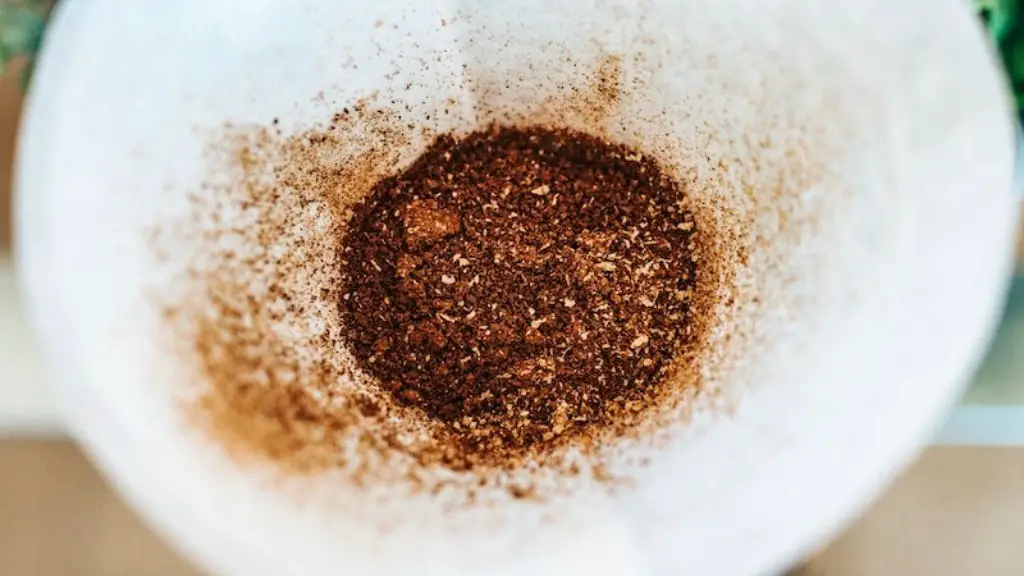Whether you are trying to become pregnant, are already pregnant, or just want to ensure your health for the future, there is one question that all women ask at some point: “What happens when a pregnant woman drinks coffee?” This is an important question, as coffee is one of the most widely consumed beverages throughout the world. Drinking coffee is often seen as an important part of many cultures, as it is an effective way to increase energy and focus. But with pregnancy comes a long list of dangers and restrictions on food and drinks, so it is understandable why many women are concerned about what happens when they drink coffee in pregnancy.
While there is no definitive answer as to what happens when a pregnant woman drinks coffee, there is limited research that has been conducted on the subject. Most studies suggest that drinking more than 200 mg of caffeine during pregnancy can cause an increased risk of miscarriage and other abnormalities in the baby. This amounts to about 1-2 cups of caffeinated coffee per day. However, it is important to take into account that each person’s reactions to caffeine may vary, so if you are pregnant, it is best to speak with your doctor about your caffeine consumption to get an accurate recommendation for your specific situation.
Caffeine may also pass through to the baby, so it is important to keep in mind that your unborn baby may be more sensitive to it. Studies suggest that in some cases, caffeine consumption during pregnancy can affect the baby’s sleep patterns, heart rate and other physiological responses. Furthermore, some babies have been observed to be irritable, have trouble sleeping, and have increased reflex responses, all of which may have been linked to caffeine consumption in the mother’s diet.
It is also important to note that there are other potential risks associated with caffeine consumption during pregnancy. For example, some studies suggest that caffeine increases the risk of preterm labor and birth defects in babies. Additionally, pregnant women who drink caffeinated beverages are more likely to suffer from dehydration, as the caffeine acts as a diuretic and can cause the body to lose more fluids.
Although there is limited research on the effects of drinking coffee during pregnancy, it may be best to limit caffeine consumption during pregnancy in order to avoid any potential risks. As previously mentioned, each person’s reactions to caffeine may vary, so it is best to discuss your caffeine consumption with your doctor in order to get an adequate, personalized recommendation. Additionally, if you are pregnant, it is also important to limit the amount of other caffeinated drinks you consume such as energy drinks, soda, and tea.
Caffeine Alternatives
If you are looking for a way to increase your energy levels without having to drink coffee, there are several alternative options to drinking caffeinated beverages. For example, consuming foods with complex carbohydrates (like whole-grain breads and cereals) can provide more sustained energy than caffeine. Additionally, there are herbal teas and nourishing smoothies you can drink as a healthy and energizing alternative to coffee. If you are craving a hot beverage, there are also several non-caffeinated options such as cocoa and herbal rooibos teas.
It is also important to make sure you are getting enough rest, as lack of sleep is one of the primary sources of fatigue during pregnancy. Additionally, exercising regularly can help to boost your energy levels, as long as you are staying within the bounds of your doctor’s recommendations. Finally, try to reduce stressful activities during pregnancy as much as possible, as this can also contribute to fatigue.
Nutrition & Proper Hydration
In addition to reducing caffeine consumption and engaging in energizing habits, proper nutrition and hydration are essential for staying healthy and energized during pregnancy. Eating foods that are high in protein, complex carbohydrates, and healthy fats will provide the energy and nutrients you need throughout the day. Eating smaller and more frequent meals can help to keep your energy levels balanced, as can reducing sugar and processed foods in your diet. Making sure you are consuming an adequate amount of water and other fluids is also key for staying hydrated.
It is important to keep in mind that pregnancy can be an exhausting experience, and being fatigued is completely normal. If you are feeling particularly fatigued and can’t seem to find the energy to do everyday tasks, it is important to speak with your doctor. Your healthcare provider is best able to assess what may be causing your fatigue, and will be able to provide the necessary treatment.
Risks of Consuming Caffeine During Pregnancy
Although there is limited research on the risks of caffeine consumption during pregnancy, it is essential to be aware of the potential dangers. Most studies suggest that drinking more than 200mg of caffeine per day can increase the risk of miscarriage and other complications for the baby, as well as an increased risk of preterm labor and birth defects. Additionally, caffeine may pass through to the baby and can affect the baby’s sleep patterns, heart rate, and other physiological responses. Therefore, it is best for pregnant women to limit their caffeine consumption during pregnancy.
Final Considerations
In conclusion, it is important to understand the potential risks of drinking coffee during pregnancy. While it is not recommended that pregnant women drink caffeinated beverages, there are several alternatives you can make to still feel energized. Making sure you are consuming a nutritious diet, drinking plenty of water, getting enough rest, and engaging in low-intensity exercise can all be helpful in boosting your energy levels. Ultimately, it is best to speak with your doctor to get personalized advice to ensure you stay healthy and energized throughout the pregnancy.


